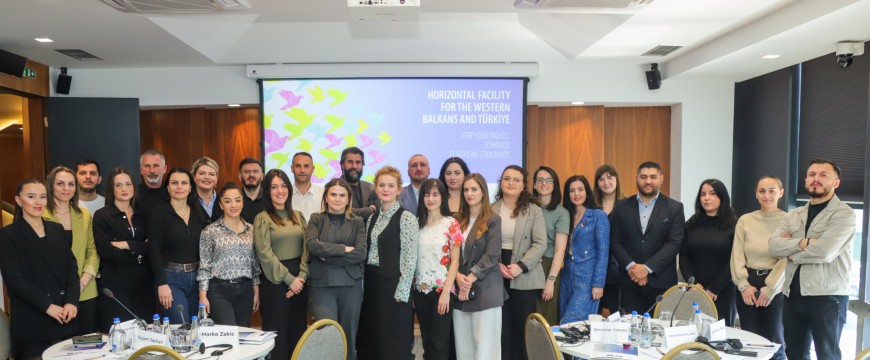The programme has been supporting the main actors in the Western Balkans regarding promotion and protection of freedom of expression and freedom of the media. In this context, beneficiaries’ institutions, civil society organisations or media associations have built their capacities and have raised their knowledge on how to protect these two essential freedoms in line with the European standards.
Institutional pressures are a form of threat that most journalists in Serbia often encounter in their work (46.2%), followed by economic pressures or job insecurity (40.2%). 29.9% of journalists often or regularly encounter the problem of targeting and smear campaigns, and 30.5% reported that they regularly or frequently face verbal threats. These are some of the findings of the new Report on safety of journalists in Serbia, prepared with the support of the European Union and the Council of Europe. The report aims to foster the development of relevant policies through identification of invisible pressures such as self-censorship, digital forms of violence and factors that lead to these negative occurrences.
In Bosnia and Herzegovina, the prosecutors and police officers were designated as focal points for the safety of journalists as a mechanism to improve the systematic protection of journalists. The training session, organised in February, strengthened the capacity of prosecutors and police officers in accordance with the European standards of protection and the national legal framework.
Similarly, a group of 30 journalists from various media outlets in Kosovo* gathered in Pristina for a specialised training focused on their safety. The training provided practical guidance on navigating threats and challenges faced by journalists today. As a result, the participating media professionals are now better equipped to respond to the challenges on the ground.
A Legal Opinion on three main laws regulating media in Montenegro – on Media, on Audio Visual Media Services, and on the National Public Broadcaster - was prepared for the Government of Montenegro, with the support of the European Union and the Council of Europe. The document provides recommendations on the harmonisation of the laws with the European standards, such as the recommendations of the Committee of Ministers of the Council of Europe, practice of the European Court of Human Rights, and the EU Directive on Audiovisual Media Services.
To uphold the principles of freedom of expression and protection of journalists, a capacity-building initiative was organised in North Macedonia. It gathered legal professionals from various backgrounds including judges, prosecutors, and lawyers. During the training course, the participants were exploring strategies to address the underlying principles and conditions for limitations on the freedom of expression, defamation and insult, hate speech and threats faced by journalists while upholding the values of democracy.
*This designation is without prejudice to positions on status, and is in line with UNSCR 1244 and the ICJ Opinion on the Kosovo Declaration of Independence.



